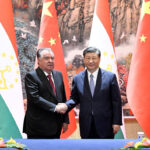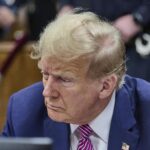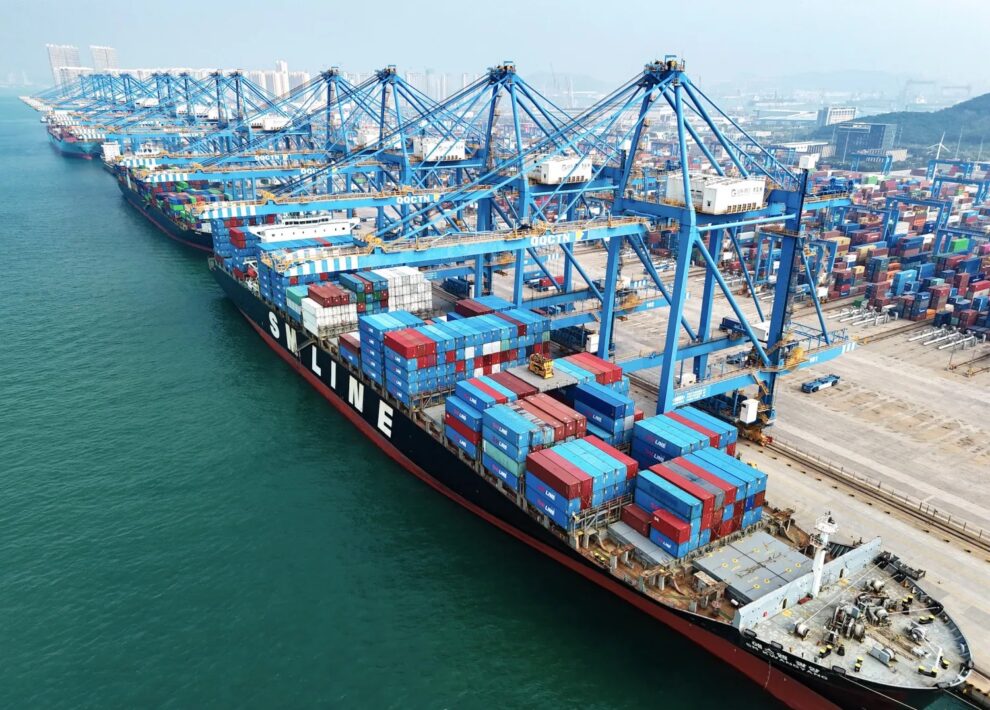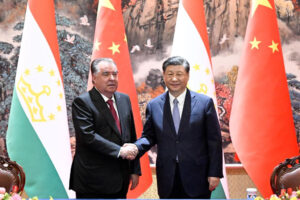Target China’s tactics, not its growth
It is not the People’s Republic of China’s (PRC) economic growth, per se, that poses a risk to U.S. national security, but rather the zero-sum means by which the regime in Beijing continues to achieve that growth, as well as the autocratic end goals that growth facilitates.
A better question would be framed in terms of U.S. interests, not rival nation outcomes: should the United States undertake policies to protect its interests, even when doing so slows down GDP growth in China? Here, the answer is clearly yes. The PRC’s brute force economics — an analytic frame I use to describe the evolving set of tactics Beijing uses to bolster the wealth and power of the Chinese state and its national champions at the expense of rival nations and firms — poses intolerable risks to U.S. interests by creating dangerous supply chain dependencies and undermining innovation. These tactics, deployed on a vast scale and scope, also undermine the principles of market competition and transparency the United States advocates with its democratic allies and partners. Consequently, U.S. policymakers must actively defend against these tactics.
Distinguishing between economic growth and the means for achieving it is important for at least two reasons: 1) getting the message right and 2) ensuring strategic focus.
First, targeting PRC behavior (means/tactics) rather than outcomes (growth) insulates the United States from misplaced criticism. Making slower PRC growth an explicit U.S. policy objective invites unhelpful narratives that assign too much agency — and blame — to Washington.
The PRC’s current economic malaise is a product of Beijing’s failure, over many years, to undertake well-understood but politically difficult reforms. While U.S. policies aimed at countering PRC brute force economic tactics — such as tariffs, enhanced investment screening, and export controls — have inflicted economic pain, these moves merely accelerated a long-term PRC slowdown that was underway long before the U.S. shift toward strategic competition in 2017. China’s economic woes are rooted in structural factors and self-inflicted wounds, such as a shrinking population, massive debt accumulated from a multiyear investment binge, and avoidance of necessary fiscal and financial reforms.
This distinction is key when it comes to explaining U.S. policies to domestic audiences, allies, and partners, whose support is essential if the United States hopes to sustain strategic focus. The message will be lost on Beijing, however. Chinese Communist Party (CCP) propagandists will seize the opportunity to blame U.S. policies for China’s economic problems, regardless of U.S. messaging. Even during the engagement era, when U.S. policy explicitly aimed to help China grow sustainably, Beijing harbored deep skepticism of U.S. intentions. Now that the United States has shifted to strategic competition, verbal assurances that Washington does not seek to contain China or stifle its economic progress will not only fail to persuade Beijing but may even be counterproductive: repeating the CCP’s false narratives, even to dispel them, reinforces them in listeners’ minds around the world.
The best Washington can do in messaging its policies to Chinese audiences is to combine long-term optimism with near-term realism, to the effect of: “A free, peaceful, and prosperous China would be the best possible outcome for the people of China, the United States, and the rest of the world. We continue to hope for that future, but at present, the CCP is moving China in the opposite direction, giving us no choice but to protect ourselves and push back against its economic aggression.”
Second, the distinction between PRC growth and tactics is important so that U.S. policies will have a clear strategic focus and can be assessed for effectiveness. Blurring this distinction raises the risk that the United States will abandon pushback policies too soon. If slower PRC growth were the policy objective, U.S. policymakers would be susceptible to prematurely declaring victory, or downshifting their sense of urgency, as economic conditions in China deteriorate further.
It would be dangerous for Washington to assume that slower growth in China will translate into quick U.S. wins in their military and techno-industrial rivalry. China’s economic malaise offers some benefits for the United States, such as lower inflation and an acceleration of the geopolitical trends driving companies to “de-risk” that will in turn provide a shot in the arm for U.S. and allied reshoring and friendshoring efforts. However, it will not immediately force Beijing to grapple with new guns-versus-butter tradeoffs.
In theory, slower growth means fewer resources for Beijing to plow into its military and techno-industrial programs. But in practice, these resource constraints could take years to manifest in a downsized challenge for Washington. Even at very low rates of annual growth, China’s economy is already very large and, therefore, its outlays for military modernization and technological development, although significant in gross terms, account for a modest percentage of its GDP. Take PRC military spending as an example: though probably much higher than Beijing’s official numbers suggest, even high estimates amount to less than 4% of China’s GDP — far less than Soviet military spending at its height. This is not enough to bankrupt the regime or even impose serious constraints on military modernization anytime soon. As an autocracy, the PRC can continue to direct resources to military and techno-industrial priorities at the expense of funding for the social safety net and other programs that would boost household welfare and rebalance the economy.
Rather than aiming for the vague objective of slowing China’s growth, U.S. policymakers should pursue two specific goals regarding Chinese tactics: degrading China’s military and technological capabilities and countering its anticompetitive and coercive economic tactics. Fear that these policies will result in slower GDP growth in China should not hold Washington back. Slower PRC growth should already be baked into every policymaker and business leader’s calculus. The strategic importance of taking a strong stand against PRC brute force economics — and rallying allies and partners to pool their domestic market demand to counter the gravitational pull of the China market — outweighs the additional economic pain that those policies could cause on the margins.
Source: Brookings











